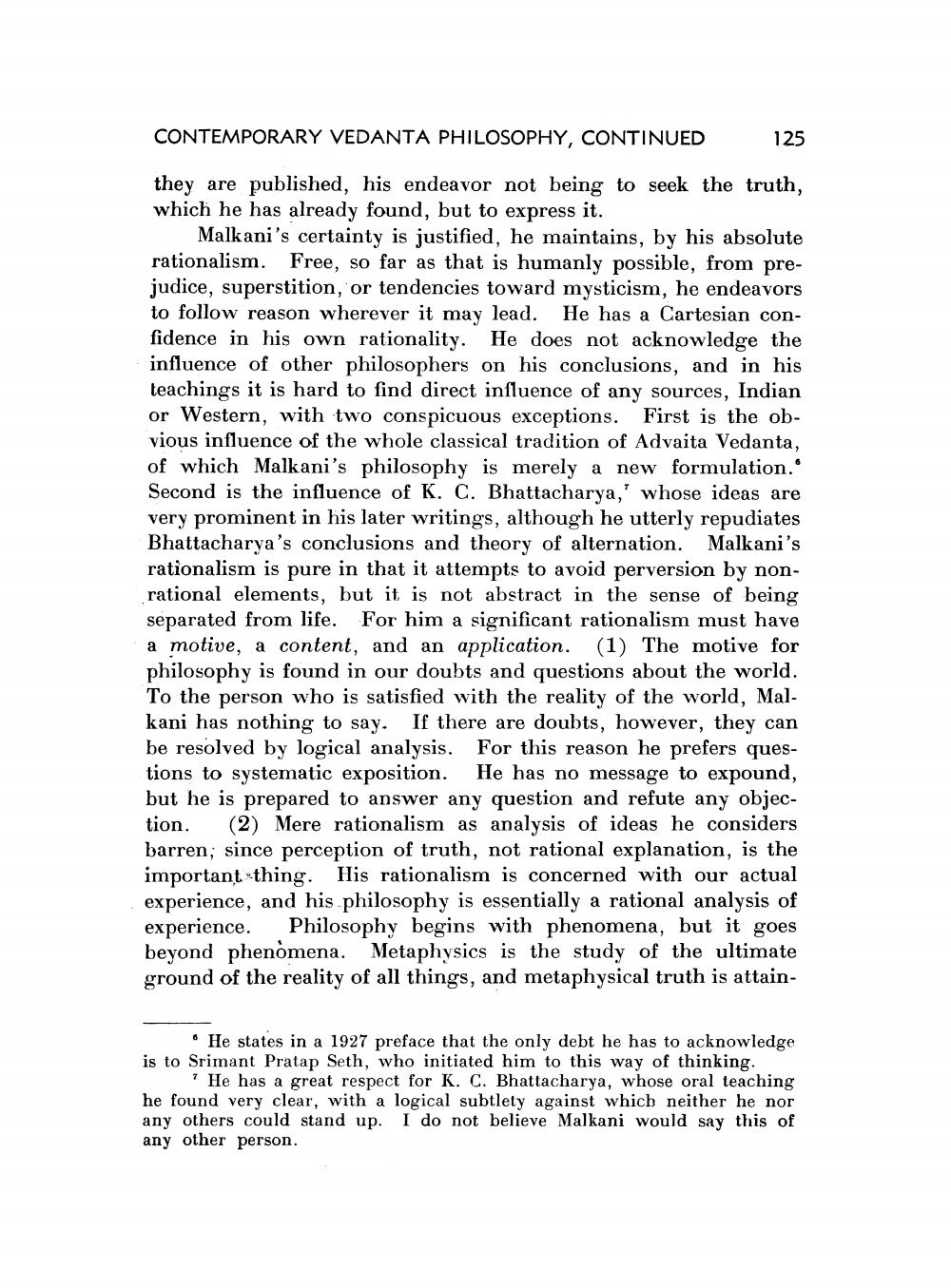Book Title: Contemporary Vedanta Philosophy Continued Author(s): George Burch Publisher: George Burch View full book textPage 4
________________ CONTEMPORARY VEDANTA PHILOSOPHY, CONTINUED they are published, his endeavor not being to seek the truth, which he has already found, but to express it. 125 Malkani's certainty is justified, he maintains, by his absolute rationalism. Free, so far as that is humanly possible, from prejudice, superstition, or tendencies toward mysticism, he endeavors to follow reason wherever it may lead. He has a Cartesian confidence in his own rationality. He does not acknowledge the influence of other philosophers on his conclusions, and in his teachings it is hard to find direct influence of any sources, Indian or Western, with two conspicuous exceptions. First is the obvious influence of the whole classical tradition of Advaita Vedanta, of which Malkani's philosophy is merely a new formulation." Second is the influence of K. C. Bhattacharya,' whose ideas are very prominent in his later writings, although he utterly repudiates Bhattacharya's conclusions and theory of alternation. Malkani's rationalism is pure in that it attempts to avoid perversion by nonrational elements, but it is not abstract in the sense of being separated from life. For him a significant rationalism must have a motive, a content, and an application. (1) The motive for philosophy is found in our doubts and questions about the world. To the person who is satisfied with the reality of the world, Malkani has nothing to say. If there are doubts, however, they can be resolved by logical analysis. For this reason he prefers questions to systematic exposition. He has no message to expound, but he is prepared to answer any question and refute any objec tion. (2) Mere rationalism as analysis of ideas he considers barren, since perception of truth, not rational explanation, is the important thing. His rationalism is concerned with our actual. experience, and his philosophy is essentially a rational analysis of experience. Philosophy begins with phenomena, but it goes beyond phenomena. Metaphysics is the study of the ultimate ground of the reality of all things, and metaphysical truth is attain He states in a 1927 preface that the only debt he has to acknowledge is to Srimant Pratap Seth, who initiated him to this way of thinking. He has a great respect for K. C. Bhattacharya, whose oral teaching he found very clear, with a logical subtlety against which neither he nor any others could stand up. I do not believe Malkani would say this of any other person.Page Navigation
1 2 3 4 5 6 7 8 9 10 11 12 13 14 15 16 17 18 19 20 21 22 23 24 25 26 27 28 29 30 31 32 33 34 35 36
